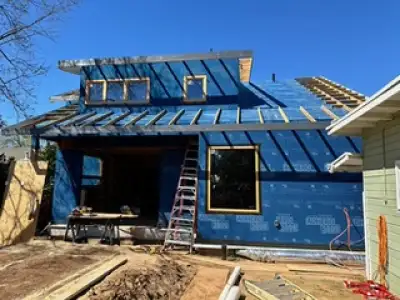More than 50 organizations, including the Passive House Accelerator, have signed on to support this campaign. Other members include Passive House California and the U.S. Green Building Council for California, along with architects, builders, housing advocates, and environmental groups.

California, generally regarded as an energy efficiency leader among the 50 states, has been lagging when it comes to giving the nod to Passive House as a building energy code compliance pathway. That could be changing soon, thanks to the efforts of a coalition of climate action groups and design-related professionals, led by Climate Action California (CAC). CAC is urging the state to add the Passive House standard as an optional code compliance pathway to meeting the state’s Title 24 building energy code.
The goal of the campaign is to get the state legislature to approve an alternate compliance pathway that would enable anyone seeking a building permit for new construction to use either the PHPP or WUFI Passive to demonstrate compliance with the state’s energy code requirements. This compliance pathway would obviate the need for also completing the state’s building energy code compliance model—a duplicate effort that disincentivizes Passive House, according to CAC. “Not having to do two energy models is going to be a huge benefit,” agrees Bronwyn Barry, principal of the architecture firm, Passive House BB, which is based in San Francisco.
The draft legislation proposed by CAC is based on the code language found in the Washington State Energy Code. That code permits residential projects to demonstrate compliance using either Phius or Passive House Institute documentation and pre-certification.
The CAC is actively recruiting state senators and assembly members to sponsor and carry the bill. “When the next legislative year begins in September, we'll be talking to potential bill sponsors,” says Robert Haw, the lead of CAC’s Building Decarbonization team who is involved in the effort to get this legislation passed. He asks anyone interested in joining the campaign or suggesting potential sponsors to contact CAC at [email protected].